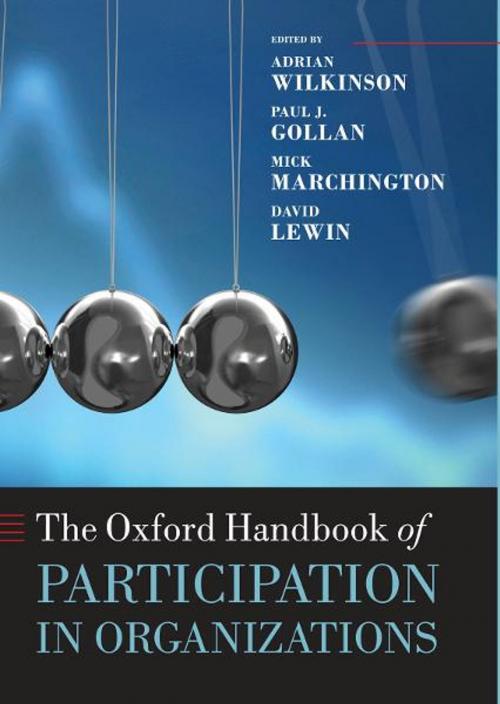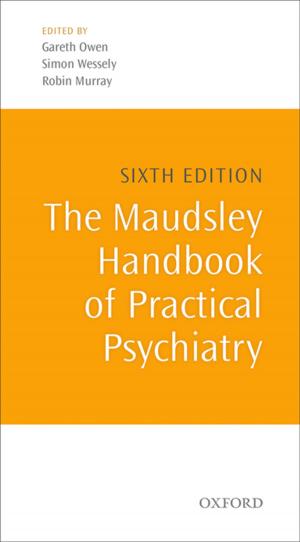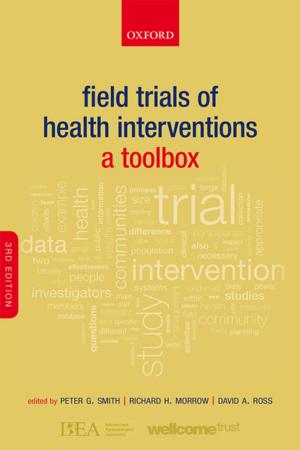The Oxford Handbook of Participation in Organizations
Business & Finance, Management & Leadership, Industrial Management, Industries & Professions, Industries| Author: | ISBN: | 9780191607202 | |
| Publisher: | OUP Oxford | Publication: | February 18, 2010 |
| Imprint: | OUP Oxford | Language: | English |
| Author: | |
| ISBN: | 9780191607202 |
| Publisher: | OUP Oxford |
| Publication: | February 18, 2010 |
| Imprint: | OUP Oxford |
| Language: | English |
Employee participation encompasses the range of mechanisms used to involve the workforce in decisions at all levels of the organization - whether direct or indirect - conducted with employees or through their representatives. In its various guises, the topic of employee participation has been a recurring theme in industrial relations and human resource management. One of the problems in trying to develop any analysis of participation is that there is potentially limited overlap between these different disciplinary traditions, and scholars from diverse traditions may know relatively little of the research that has been done elsewhere. Accordingly in this book, a number of the more significant disciplinary areas are analysed in greater depth in order to ensure that readers gain a better appreciation of what participation means from these quite different contextual perspectives. Not only is there a range of different traditions contributing to the research and literature on the subject, there is also an extremely diverse sets of practices that congregate under the banner of participation. The handbook discusses various arguments and schools of thought about employee participation, analyzes the range of forms that participation can take in practice, and examines the way in which it meets objectives that are set for it, either by employers, trade unions, individual workers, or, indeed, the state. In doing so, the Handbook brings together leading scholars from around the world who present and discuss fundamental theories and approaches to participation in organization as well as their connection to broader political forces. These selections address the changing contexts of employee participation, different cultural/ institutional models, old/'new' economy models, shifting social and political patterns, and the correspondence between industrial and political democracy and participation.
Employee participation encompasses the range of mechanisms used to involve the workforce in decisions at all levels of the organization - whether direct or indirect - conducted with employees or through their representatives. In its various guises, the topic of employee participation has been a recurring theme in industrial relations and human resource management. One of the problems in trying to develop any analysis of participation is that there is potentially limited overlap between these different disciplinary traditions, and scholars from diverse traditions may know relatively little of the research that has been done elsewhere. Accordingly in this book, a number of the more significant disciplinary areas are analysed in greater depth in order to ensure that readers gain a better appreciation of what participation means from these quite different contextual perspectives. Not only is there a range of different traditions contributing to the research and literature on the subject, there is also an extremely diverse sets of practices that congregate under the banner of participation. The handbook discusses various arguments and schools of thought about employee participation, analyzes the range of forms that participation can take in practice, and examines the way in which it meets objectives that are set for it, either by employers, trade unions, individual workers, or, indeed, the state. In doing so, the Handbook brings together leading scholars from around the world who present and discuss fundamental theories and approaches to participation in organization as well as their connection to broader political forces. These selections address the changing contexts of employee participation, different cultural/ institutional models, old/'new' economy models, shifting social and political patterns, and the correspondence between industrial and political democracy and participation.















